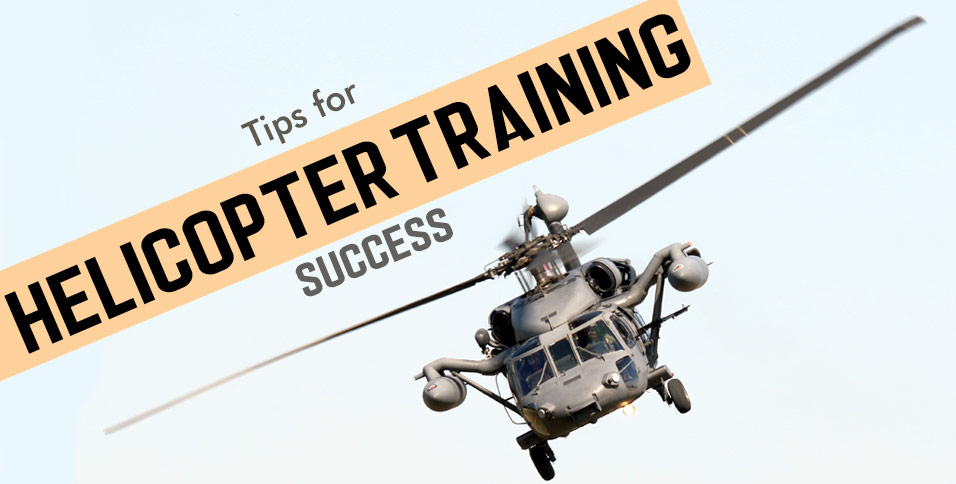Helicopter training is an exciting and challenging experience that requires a lot of dedication, hard work, and commitment. Aspiring pilots must undergo rigorous training to learn the skills and knowledge they need to fly helicopters safely and successfully. If you’re considering flight training in helicopters, there are several tips you should keep in mind to ensure your success.
First, choosing a reputable flight school with experienced instructors who are committed to providing you with the best possible training is essential. Look for a school with a good safety record, modern equipment, and a comprehensive curriculum covering everything from basic helicopter operations to advanced flying techniques.
Once you’ve found a good flight school for your flight training needs, make sure that you create a solid plan and set clear goals for yourself. Decide on what type of helicopter pilot career you would like to pursue – whether for commercial or private use – this will give you direction throughout your journey and help keep you motivated.
Another essential tip for success in helicopter flight training is consistency in practice. Frequent opportunities for exercise will help develop muscle memory while improving proficiency levels simultaneously- ultimately leading to better results! This includes ground lessons (classroom instruction) and time spent flying with an instructor through scenario-based lessons.
It may also be helpful to find other students who share similar goals so that they can encourage you along the way; such people act as teammates during your educational journey. In addition to fellow students within class peer networks, seeking out mentorship by more senior pilots who have already achieved professional success is one great way these individuals could share their valuable insights from industry experience- including tips on avoiding common pitfalls along one’s path toward becoming accomplished aviators!
Moreover, just studying isn’t enough; make sure you incorporate physical fitness into your routine because this occupation involves a lot of stamina- both physically & mentally! Aerobic exercise like running or cycling is helpful since these activities engage both your mind and body- important attributes needed when aspiring for an occupation as a helicopter pilot.
Having good communication skills is essential when you are undergoing flight training. Besides, it will enable you to be able to accommodate changes in instructions from the instructor and also help air traffic control know your intentions while in flight, which is critical for everyone’s safety. Listening carefully and actively responding while going through lessons with flight simulators or live instruction should be well understood and implemented throughout your entire aviation career.
In regards to flying techniques, aspiring pilots must become comfortable with instrument flying, as this is a skill set that helicopters often rely upon, given the limited visibility capabilities of the aircraft. On top of that, learning to fly at night or in adverse weather conditions adds even more complexity. Furthermore, helicopter pilots must learn advanced maneuvers such as hovering – transitioning – landing & resuming flights since these enable the maneuverability required when flying through metropolitan areas.
Ergo, before any actual live flight with passengers on board, ensues, there will be plenty of time spent practicing “emergency procedures”; these can include engine failures (i.e., autorotation), immediate descending scenarios- all after hidden dangers posing themselves midway during usual piloting routines routine arise.
Finally, understanding the regulations governing helicopter operations is just as important as learning how to fly itself! The Federal Aviation Administration (FAA) provides specific requirements that all pilots must adhere to; knowledge of FAA regulations ensures compliance so you can keep flight missions in tolerances prescribed by regulatory bodies.
In summary, helicopter training success doesn’t come overnight but requires discipline applied regularly throughout one’s entire aviation journey. Finding ways towards self-motivation along with seeking out guidance from experienced personnel ensure individuals get where they aim—fostering peer relationships with mentorship programs to take advantage of accumulated field experience earned by those who have already achieved professional success- plus adding physical fitness into the routine is essential for preparing aspiring pilots to handle their obligated tasks with enhanced efficiency. Understand that advancements in avionics technology are ongoing, as with all things aviation related- continuous study & practice will bring desired results in line with adequately defined goals.
Also Read: Cora, a New Flying Taxi from a start-up Funded by Google’s Larry Page
















